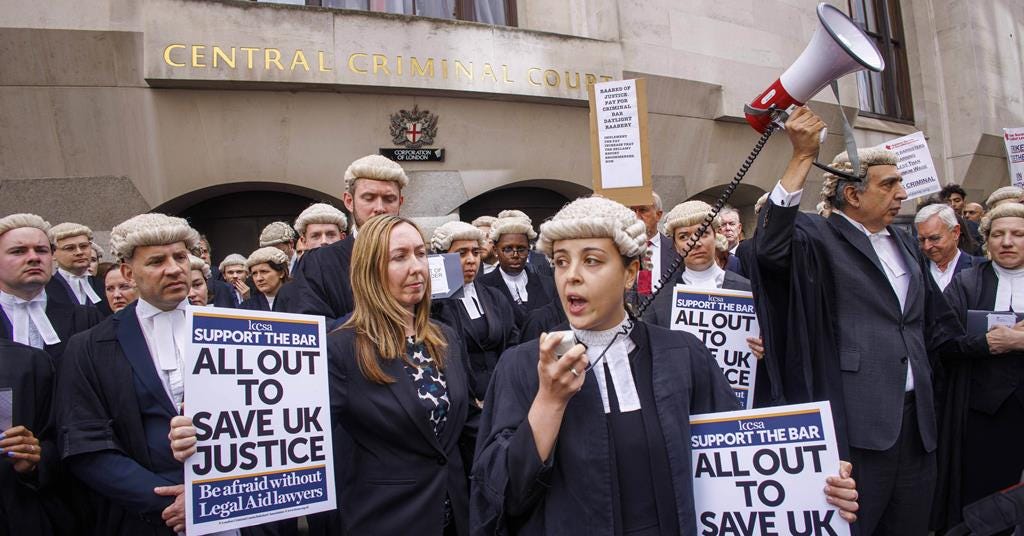My time on the picket line
What it’s like to go on strike — and how I lost my job
The Criminal Bar Association is “holding justice to ransom”, Dominic Raab says today. So perhaps its message is getting through to the justice secretary.
I don’t suppose that many of the barristers who voted by four to one in favour of an indefinite strike ever expected to find themselves on the picket line when they first became lawyers. Neither did I.
In years gone by, strikes were a working-class thing. And when Arthur Scargill brought his National Union of Mineworkers out in 1984/85, lawyers played a key part in ensuring that the industrial action eventually failed. This was the first story I covered as the BBC’s legal specialist. It was also the last time the courts were instrumental in protecting the government from a union threat that could have brought it down.
Nowadays, some of the brightest young barristers come from what might still be characterised as the working class — although far fewer of them will qualify in future if the current action ultimately fails and the criminal bar is again confined to those whose parents could afford to fund them. On the other hand, most trade unions have moved on: the GMB union now has a “faith workers” branch for rabbis.
Withdrawing one’s labour is no longer confined to labourers. Even so, it’s usually pointless for self-employed workers to go on strike. Criminal defence lawyers are doing so because in most cases their fees come from a single source: the government.
My time as a trade unionist
I was a fully paid-up trade union member for more than 30 years. With somewhat unfortunate timing, I left just before I lost my job.
Keep reading with a 7-day free trial
Subscribe to A Lawyer Writes to keep reading this post and get 7 days of free access to the full post archives.


